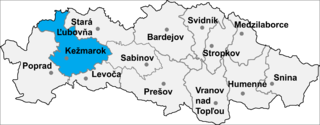There are five types of elections in Slovakia: municipal elections, regional elections, parliamentary elections, presidential elections and elections to the European Parliament. All four types of elections are normally held after fixed periods, although early elections can occur in certain situations. Elections are conventionally scheduled for a Saturday - the polls normally open at 7:00 in the morning and close at 22:00 in the evening. Citizens aged 18 years or older are eligible to vote. Those serving prison sentences for particularly serious crimes, as well as those deprived of legal capacity, including persons with mental disabilities, are denied the right to vote. Voter registration is passive and decentralized with the voter register maintained by municipalities based on the permanent residence register. Voter lists are updated continuously based on municipal records and input provided by state institutions or other municipalities. Voters may verify their data in voter lists, and, if necessary, request correction until the day before election day. On election day, a voter can be added to a voter list upon presenting an identity card with proof of residency. Some 4.4 million voters are registered and valid to vote in the elections. Voters are only able to vote from abroad during the Parliamentary Elections in Slovakia.

Prša is a village and municipality in the Lučenec District in the Banská Bystrica Region of Slovakia.
Dolná Trnávka is a village and municipality in Žiar nad Hronom District in the Banská Bystrica Region of central Slovakia.

Bartošova Lehôtka is a village and municipality in the Žiar nad Hronom District in the Banská Bystrica Region of central Slovakia.

Zálesie is a village and municipality in Kežmarok District in the Prešov Region of north Slovakia.

Ondrašovce is a village and municipality in the Prešov District of the Prešov Region of eastern Slovakia.

Krásna Lúka is a village and municipality in Sabinov District in the Prešov Region of north-eastern Slovakia.
Malé Hoste is a village and municipality in Bánovce nad Bebravou District in the Trenčín Region of north-western Slovakia.

Opatovce is a village and municipality in Trenčín District in the Trenčín Region of northwestern Slovakia.

Dolný Lopašov is a village and municipality in Piešťany District in the Trnava Region of western Slovakia. The current mayor of Dolný Lopašov is Mário Beblavý, who won the election held on November 10, 2018 as an independent candidate.

Bitarová is a village and municipality in Žilina District in the Žilina Region of northern Slovakia.

Šuja is a village municipality in Žilina District in the Žilina Region of northern Slovakia.

Liptovské Beharovce is a village and municipality in Liptovský Mikuláš District in the Žilina Region of northern Slovakia.
Elections were held in Slovakia's 8 self-governing regions on 4 November 2017.

Martin Klus is a Slovak academic, commentator, politician and political theorist.
In the run up to the 2023 Slovak parliamentary election, various organisations carried out opinion polling to gauge voting intention in Slovakia. Results of such polls are displayed in this article. The date range for these opinion polls are from the previous parliamentary election, held on 29 February 2020, to September 30th, 2023.
The 2018 Slovak local elections were held on Saturday, 10 November 2018, to elect deputies to municipality councils, city councils and mayors, including mayors of boroughs and members of their councils in Bratislava and Košice.
The 2022 Slovak regional elections were held on 29 October 2022. For the first time, local elections took place simultaneously.
Richard Takáč is a Slovak politician who has served as Minister of Agriculture of Slovakia since 2023. He is also a former deputy of the Trenčín self-governing region and a deputy of the city of Prievidza.
Martina Bajo Holečková is a Slovak politician. Since 2023 she has served as a Member of the National Council of Slovakia.











